
Look! Its a Cheburashka!
ello! Yes its Coaler or Cheburashka!

The Antonov An-74 (NATO reporting name: Coaler) is a Soviet/Ukrainian transport aircraft developed by Antonov. It is a variant of the An-72.
The An-72 and An-74 get their nickname, Cheburashka, from the large engine intake ducts,[3] which resemble the oversized ears of the popular Soviet animated character of the same name.
The An-74 was initially an upgrade of the An-72 test aircraft, intended to be used in the Arctic and Antarctica; and had the designation An-72A "Arctic".[4] The aircraft's main purpose is to deliver cargo, equipment and personnel over short- and medium-range routes in any climatic conditions ranging from -60 to 45 °C (-76 to 113 °F) and at any latitude, including the North Pole, and high altitudes. It can operate to and from low grade airstrips such as concrete, pebble, ice and snow aerodromes.
Produced in tandem with the An-72, the An-74 can be fitted with wheel-ski landing gear, de-icing equipment and a number of other upgrades allowing the aircraft to support operations in Arctic or Antarctic environments.
An-74 on landing with thrust reversers deployed
An unusual design feature of the An-74 (as well as An-72) is the use of the Coanda effect to improve STOL performance, utilizing engine exhaust gases blown over the wing's upper surface to boost lift. The powerplant used is the Lotarev D-36 turbofan engine. The An-74 bears some resemblance to the unsuccessful Boeing YC-14, a prototype design from the early 1970s which had also used overwing engines and the Coanda effect.
The rear fuselage of the aircraft has a hinged loading ramp with a rear fairing that slides backwards and up to clear the opening. The An-74 has a payload of around 11 tons including up to ten passengers in the cargo version, or up to 52 seats in the passenger version; the operating ceiling is 10,100 metres (33,100 ft) and cruising speed is 550 to 700 kilometres per hour (300 to 380 kn; 340 to 430 mph).[5] The aircraft may also be used for highly specialized operations:
- pilotage and vessel escort;
- establishing and servicing of drifting stations;
- research operations in Arctic or Antarctic regions;
- visual ice patrol;
- fishery reconnaissance.

Ag1 - Openable cargo door
Ag2 - Airbrakes
Ag3 - Lights
VTOL Down - Flaps






1st - Livery based on this photo:

2nd - Yea its goofy ik
3rd - i frogor💀
4th - Check dis version by Zaineman:

click here plez

Specifications
General Characteristics
- Successors 3 airplane(s) +28 bonus
- Created On Windows
- Wingspan 69.1ft (21.1m)
- Length 60.7ft (18.5m)
- Height 19.7ft (6.0m)
- Empty Weight N/A
- Loaded Weight 9,459lbs (4,290kg)
Performance
- Power/Weight Ratio 1.781
- Wing Loading 15.2lbs/ft2 (74.3kg/m2)
- Wing Area 621.6ft2 (57.8m2)
- Drag Points 2558
Parts
- Number of Parts 222
- Control Surfaces 10
- Performance Cost 1,283

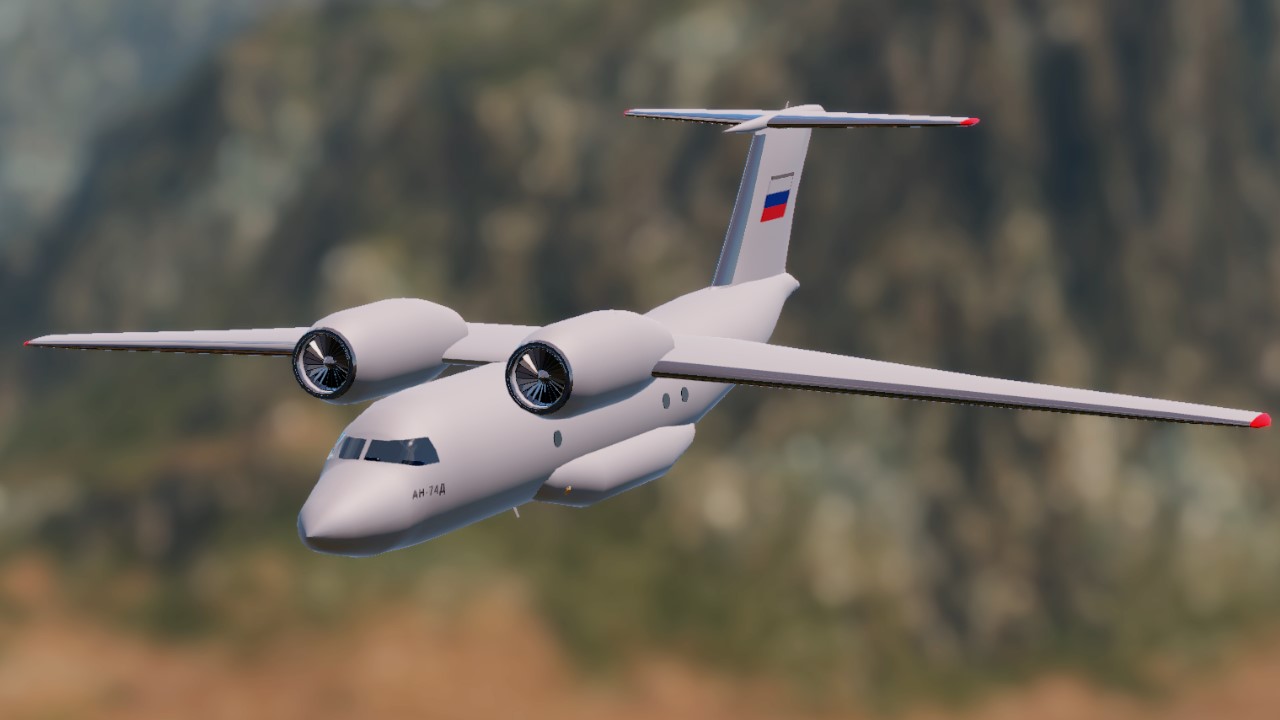
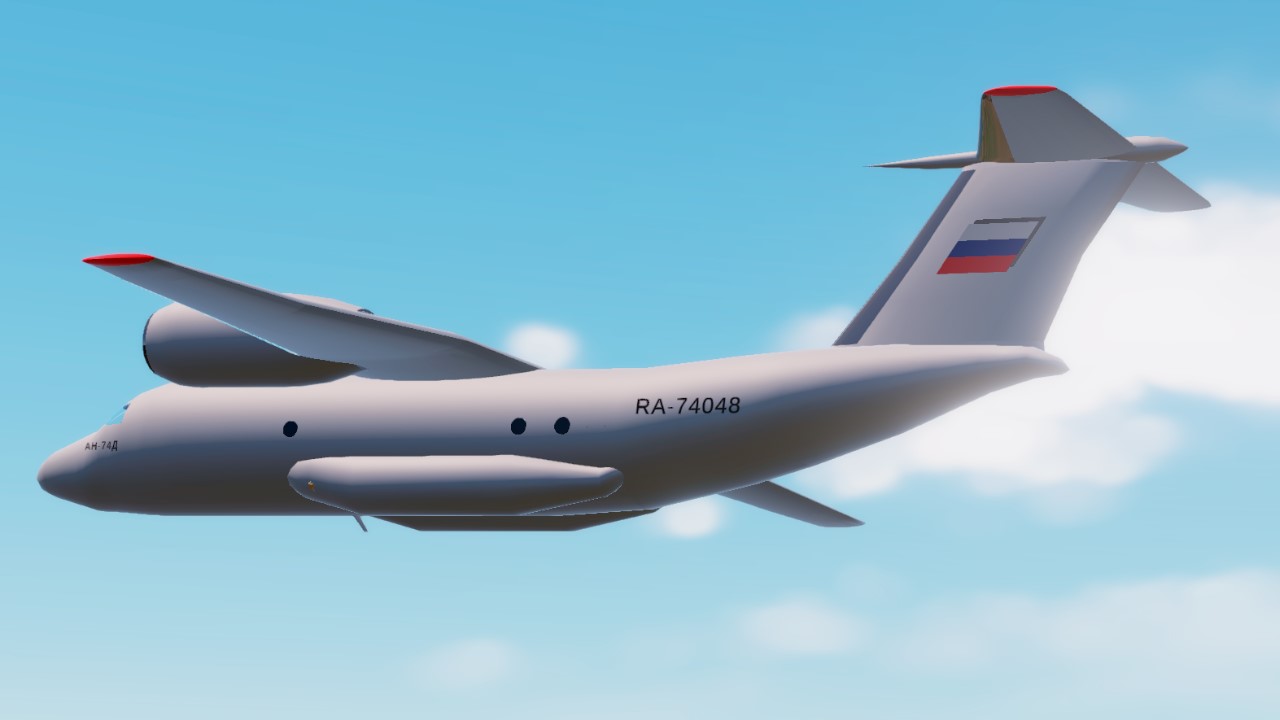
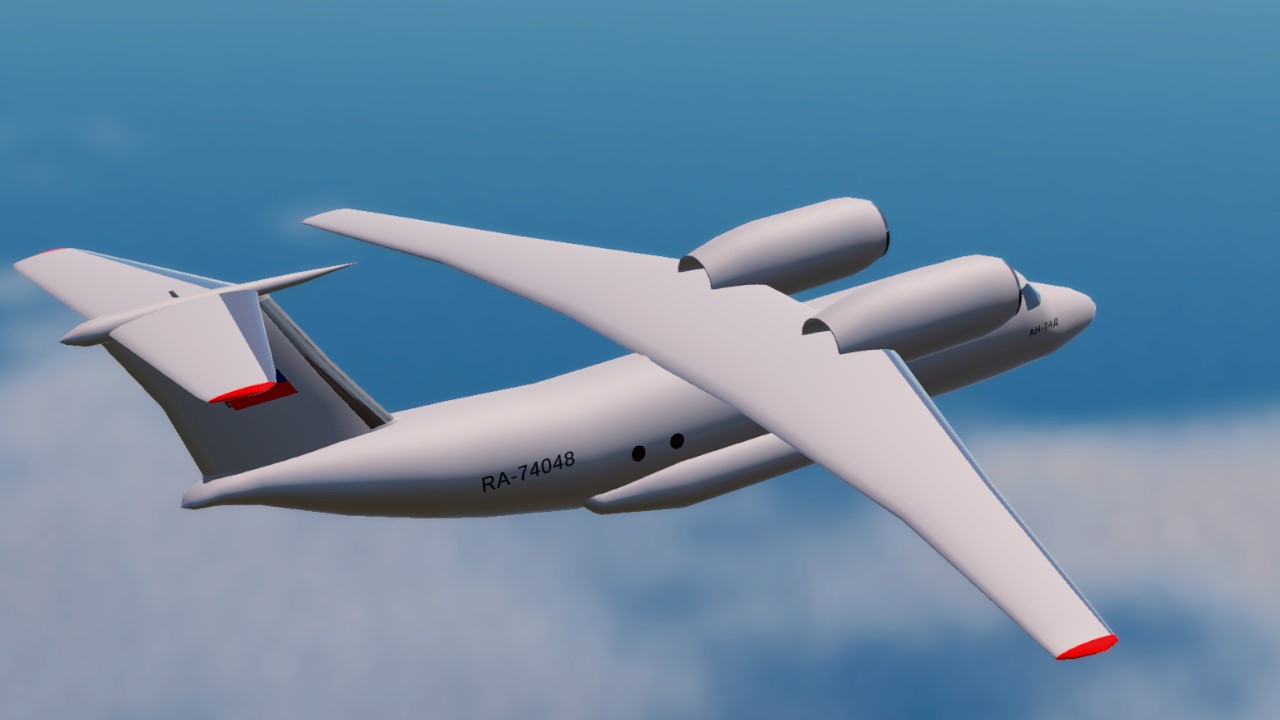
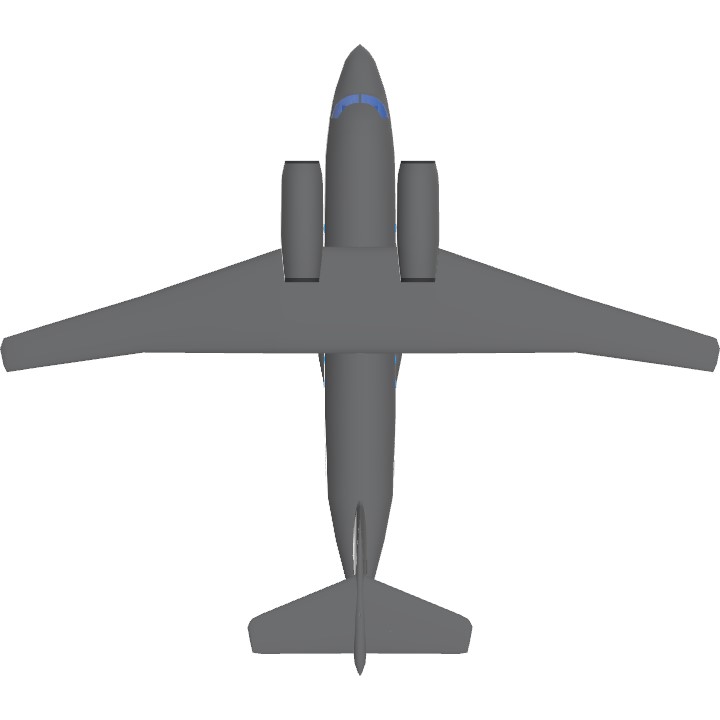
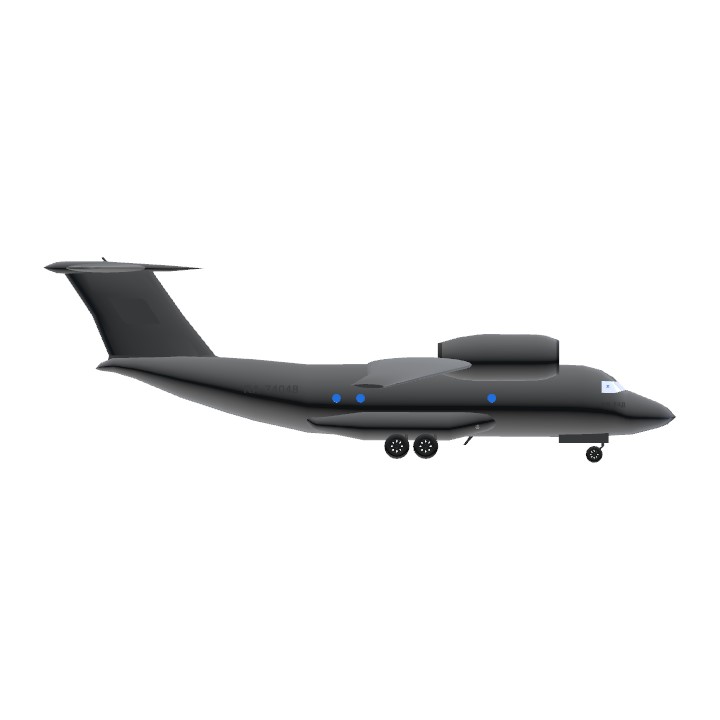
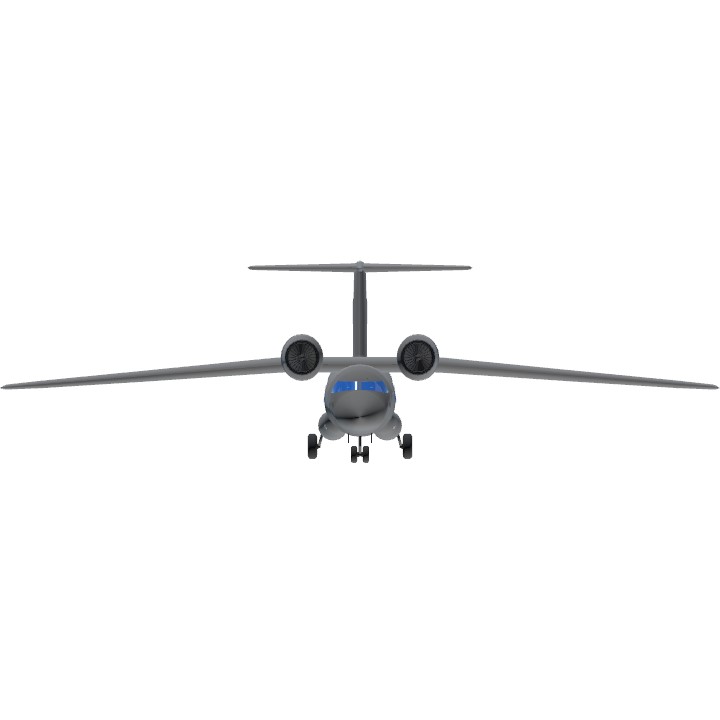
@Erc90F4RU Click here
Cheburashka just stoled dat tags:
@ThatRandomCouchPotato
@Neruneten21
@RepublicOfCursedPlanes "ok lol"
@HanakoSan
@Bryan5
@florky
@MrCOPTY
@ZerkkZxe
@Pan
@001
@DatTrainAndCarGuy19
@TalonTheCRTguy
@BYardley
Thanks Russia/Soviet Union for doing it
I wish the USA made one
@Erc90F4RU yoooooooo you grinding posts today, yuhhhhhhhhh
Comrade always delivers despite not being pregnant 🗣️🗣️🗣️🗣️🗣️🔥🔥🔥🔥🔥🔥
finally da russian blyat plane
Looks great
@WinsWings @Zaineman Guys Check This
Very nice replica.
Very nice replica.
Very nice replica.
Looks great